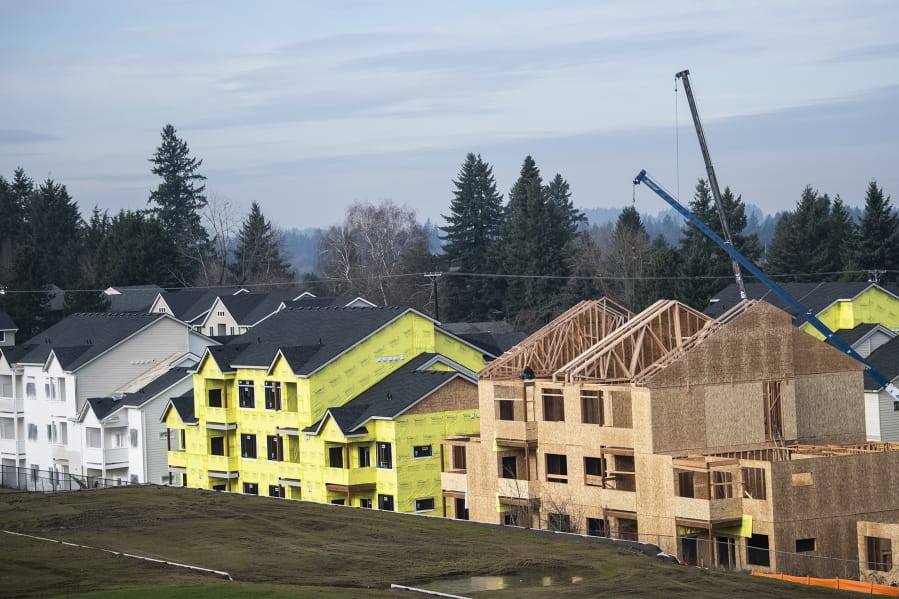Six years after the city of Vancouver declared a housing emergency for low-income households, city staff believe they are making meaningful steps to resolve the crisis.
The Vancouver City Council met with its development staff and an economic consultant Monday to discuss the “status quo” of the city’s housing conditions and what must be done to make Vancouver affordable.
“Housing was identified as one of the top tier priorities for the city council in this biennium,” City Manager Eric Holmes said. “I’m pleased we have the capacity and expertise onboard now to focus on that work in earnest.”
Michael Wilkerson, an economic consultant with EcoNorthwest, guided council members through a data-heavy presentation showing rates of housing supply and demand in Vancouver. The takeaway? Vancouver is becoming less affordable at a steady rate; the average rent for a one-bedroom apartment is $1,411 — more expensive than in Portland, where it’s $1,380.
Current approaches to market growth must change to resolve Vancouver’s limited housing affordability. Pushing development outward and predominately investing in single-family housing is not working anymore, Wilkerson said.
Instead, there needs to be greater emphasis on transitioning to a balanced growth development pattern. By building a variety of dwelling units and boosting middle housing, there will be both environmental and economic benefits. However, there is no silver bullet, Wilkerson said.
Various policy levers exist that promote housing supply and affordability, which will have a greater effect if they are used concurrently. The tools focus on land use, city investments, developer and consumer incentives, and creating a predictable process for building.
Daunting data points
According to 2019 U.S. Census data, 51 percent of renter households are cost burdened in Vancouver, meaning they spend more than 30 percent of their gross income on rent. These numbers are exceptionally high and overshadow larger cities; 41 percent of households in Seattle are cost burdened, 44 percent in Portland and 45 percent in Spokane.
“This is likely to have gotten worse over the last two years,” Wilkerson said, pointing to the year data was collected.
The alarming number comes with a disturbing correlation: Places with higher rent have higher rates of homelessness. A U.S. Government Accountability Office analysis found that a $100 rent increase resulted in a 9 percent increase of homelessness in the community. Conversely, increasing housing stock can reduce this trend, Wilkerson said.
In stark contrast, Washington was deemed the state with the worst underproduction issue, meaning there are fewer units of housing being produced than what the market demands. In 2019, Washington was behind 190,000 units where it should’ve been, Wilkerson said.
Between Vancouver’s population growth and underproduction, the housing market is continuing to strain; all the while, residents are being restricted from wealth-building opportunities through homeownership. Among them, Black, Indigenous and people of color are disproportionately impacted, Wilkerson said.
Councilor Erik Paulsen suggested city staff set a target for an estimated number of units built by a certain time — a step toward reducing Vancouver’s underproduction gap.
“We’re basically three years behind, so how do we catch up?” he asked.
“If we do everything within our capacity, we cannot reach our targets,” Mayor Pro Tem Ty Stober said, pointing to Vancouver’s climate and infrastructure goals. “But if we don’t do everything we possibly can, we won’t get anywhere near our targets.”
The council emphasized the need to strategize developments that promote accessibility, and touched on the need for increased affordable housing to be a coordinated effort between cities — not just Vancouver.
“It’s not just our city. There are seven other cities in Clark County that need to take on some of that responsibility,” Mayor Anne McEnery-Ogle said.




